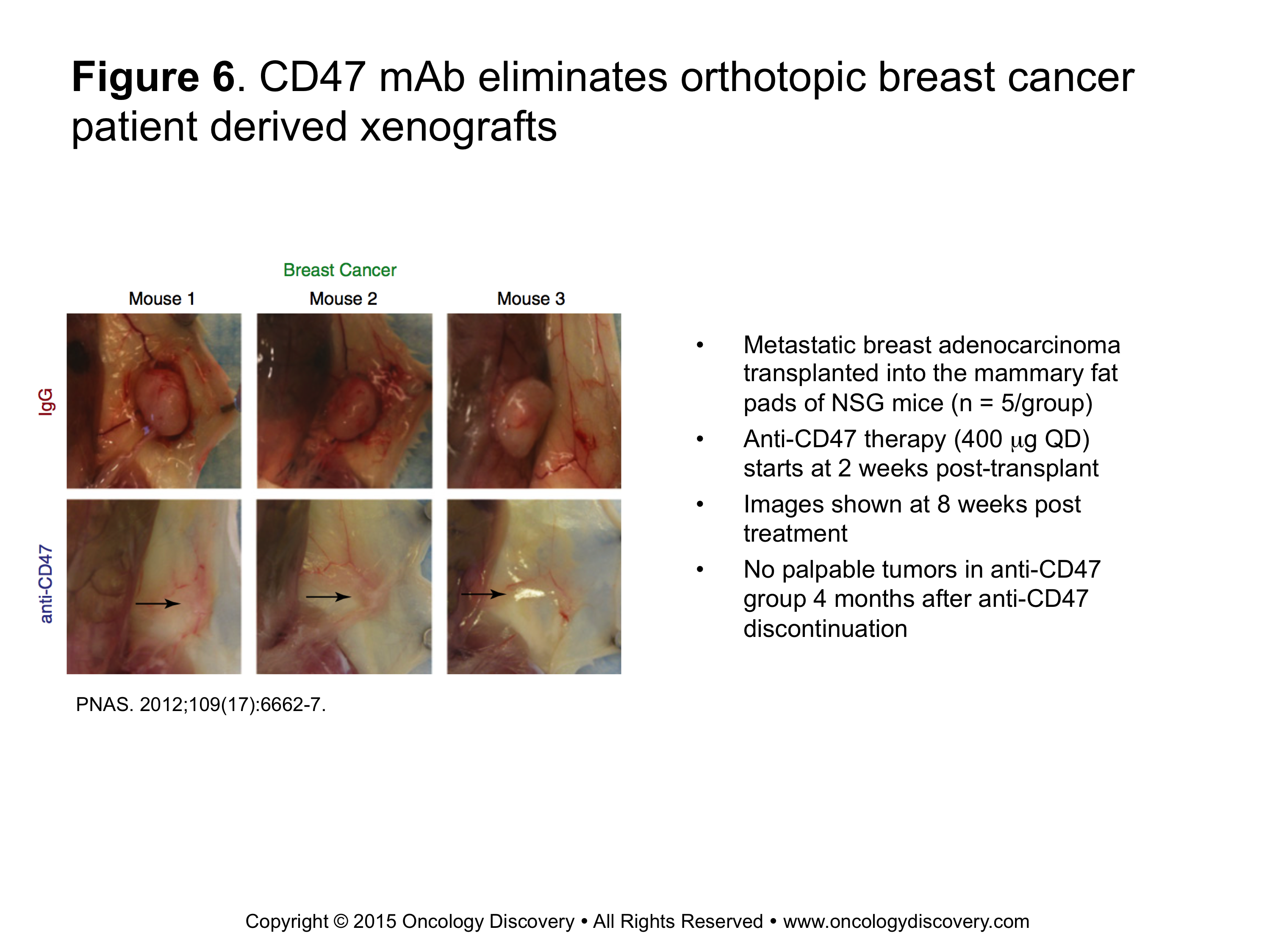4076 A Single Direct Intratumoral Injection of TTI-621 (SIRPαFc) Induces Antitumor Activity in Patients with Relapsed/Refractory Mycosis Fungoides and Sézary Syndrome: Preliminary Findings Employing an Immune Checkpoint Inhibitor Blocking the CD47 “Do Not Eat” Signal
Methods
A Phase 1, multicenter, open-label study is ongoing to characterize the safety and tolerability of intratumoral injection of TTI-621 (NCT02890368). Eligible patients (pts) are adults with relapsed or refractory mycosis fungoides/Sézary syndrome or percutaneously-accessible solid tumors who have progressed on standard anticancer therapy or for whom no other approved therapy exists. Pts are enrolled in sequential cohorts to receive a single intratumoral injection of TTI-621 at increasing dose levels to characterize safety, pharmacokinetics, pharmacodynamics, and preliminary evidence of antitumor activity. Repeat TTI-621 intratumoral dosing has recently been initiated. Serial, post-injection biopsies are collected to assess the temporal impact of TTI-621 on the tumor microenvironment.
Results
Nine pts (6 M/3F, age 57–85 years) have been enrolled as of July 2017. Diagnoses include mycosis fungoides/Sézary syndrome (N=6), melanoma (N=1), leiomyosarcoma (N=1), and squamous cell carcinoma (N=1). A single intratumoral injection of 1 mg, 3 mg, or 10 mg TTI-621 has been well tolerated by all enrolled pts. The most frequently reported adverse events were fatigue in 5 pts, chills in 4 pts, and decreased appetite in 3 pts. All treatment-related AEs were Grade 1 or 2 in severity. No dose limiting toxicity has been observed to date. All 6 pts with mycosis fungoides/Sézary syndrome experienced decreases in tumor size and/or decreased circulating Sézary cells (3 of 3 pts) as determined by a decrease in a peripheral clonal T-cell population or CD4:CD8 ratio after a single intratumoral injection of TTI-621. Responses ranged from loco-regional to systemic effects. One pt with localized refractory mycosis fungoides on the dorsum of the foot obtained a complete response of the injected lesion that is ongoing after 17+ weeks of follow up. NanoString analysis of peripheral blood and tumor tissue pre- and post-intratumoral injection of TTI-621 indicated alterations in genes associated with activation of the innate immune system and upregulation of IFN-associated genes.
Conclusions
These preliminary Phase 1 data suggest that mycosis fungoides and its leukemic variant, Sézary syndrome, are highly responsive to a single dose of TTI-621 delivered by intratumoral injection. One pt achieved a complete response of the injected lesion and 5 additional pts experienced decreases in tumor size and/or decreased circulating Sézary cells. Intratumoral injections were well tolerated by all pts. Evidence of innate immune activation was documented, consistent with the proposed function of TTI-621 as an innate immune checkpoint inhibitor.
https://ash.confex.c...aper100952.html
4116 TTI-621 (SIRPαFc), an Immune Checkpoint Inhibitor Blocking the CD47 "Do Not Eat" Signal, Induces Objective Responses in Patients with Advanced, Relapsed/Refractory Diffuse Large B-Cell Lymphoma (DLBCL)
Methods
A phase 1, open-label, multicenter study is ongoing to evaluate the activity of weekly IV infusions of TTI-621 in multiple cohorts of adult patients (pts) with relapsed or refractory malignancies. Eligible pts are those who have progressed on standard anticancer therapy (including rituximab for pts with B-cell lymphomas), or those for whom no other approved therapy exists (NCT02663518). This data disclosure comprises all consecutively enrolled pts with diffuse large B-cell lymphoma (DLBCL) who received, at a minimum, 0.2 mg/kg/week TTI-621 monotherapy or 0.1 mg/kg TTI-621 in combination with 375 mg/m2/week rituximab for 8 weeks, after which TTI-621 monotherapy was permitted.
Results
As of June 1, 2017, 14 evaluable pts with DLBCL (7M/7F, age 42–72 years) have been enrolled and treated: 6 pts received TTI-621 monotherapy and 8 pts received TTI-621 plus rituximab. The number of prior systemic therapies ranged from 2 to 13; 6 pts had received prior autograft. Weekly outpatient treatments have been well tolerated. Mild-to-moderate infusion-related reactions were experienced by 9 pts following the first dose of TTI-621. Transient, dose-dependent decreases in platelets and leukocytes were generally without clinical sequelae. Objective responses were observed for 5/14 pts (36%): 1/6 pts treated with TTI-621 monotherapy and 4/8 pts treated with TTI-621 plus rituximab. Two pts attained complete responses (CR). One CR occurred in a pt treated with TTI-621 monotherapy who remains in continued CR at 20+ weeks. The second CR was in a pt treated with TTI-621 plus rituximab who remains in continued CR at 12+ weeks.
Conclusions
Weekly IV dosing employing TTI-621 to block the CD47 “do not eat” signal as monotherapy or in combination with rituximab was well tolerated. Treatment was associated with preliminary and promising anti-tumor activity in pts with advanced DLBCL as evidenced by 2 CRs and 3 PRs among 14 pts.
https://ash.confex.c...aper100943.html






























 This topic is locked
This topic is locked



















